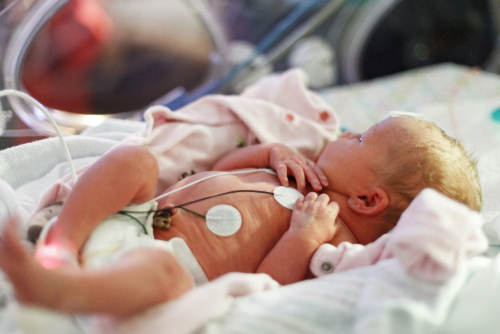Caloric intake provided to critically ill infants lack proper monitoring: Study

A study has been published in the Journal of Perinatology about the caloric intake provided to critically ill infants. The study revealed that the critically ill infants present in the Neonatal Intensive Care Units (NICUs) could not get reliable caloric intake monitoring. The NICUs participating in the Children’s Hospitals Neonatal Consortium were unable to monitor the caloric intake reliably and consistently, according to the study.
It is a complex process to manage the optimal nutrition of preemies. It is important for premature infants to get the proper amount of carbohydrates, fats, and protein for their better growth. The proper caloric intake also decreases the risks of neurodevelopmental impairment in infants. Gustave Falciglia, a neonatologist at Ann & Hobert H. Laurie Children’s Hospital of Chicago, said, “Delivery of appropriate amounts of calories to premature infants in the NICU is associated with improved outcomes.”
Dr. Falciglia said that they did not have an automated system for monitoring the caloric intake. He added that they did manual calculations but those calculations took more time and there were chances of errors. He said, “Our findings highlight the pervasive need for clinical decision support to monitor and improve the delivery of calories to babies in the NICUs.”
The study found that the surveyed NICUs had clinical decision support systems for fluid intake but they did not have the systems for caloric intake monitoring. It is easy to calculate the fluid intake as compared to the caloric intake. This research was conducted at Ann & Hobert H. Lurie Children’s Hospital of Chicago by the Stanley Manne Children’s Research Institute.
The Manne Research Institute has clear aims to find new dimensions to improve the health of the children. Laurie Children’s Hospital of Chicago is one of the top children hospitals in the US, according to the US News & World Report. The hospital served more than 220000 children last year. The patients come from other countries as well for proper treatment.










